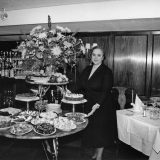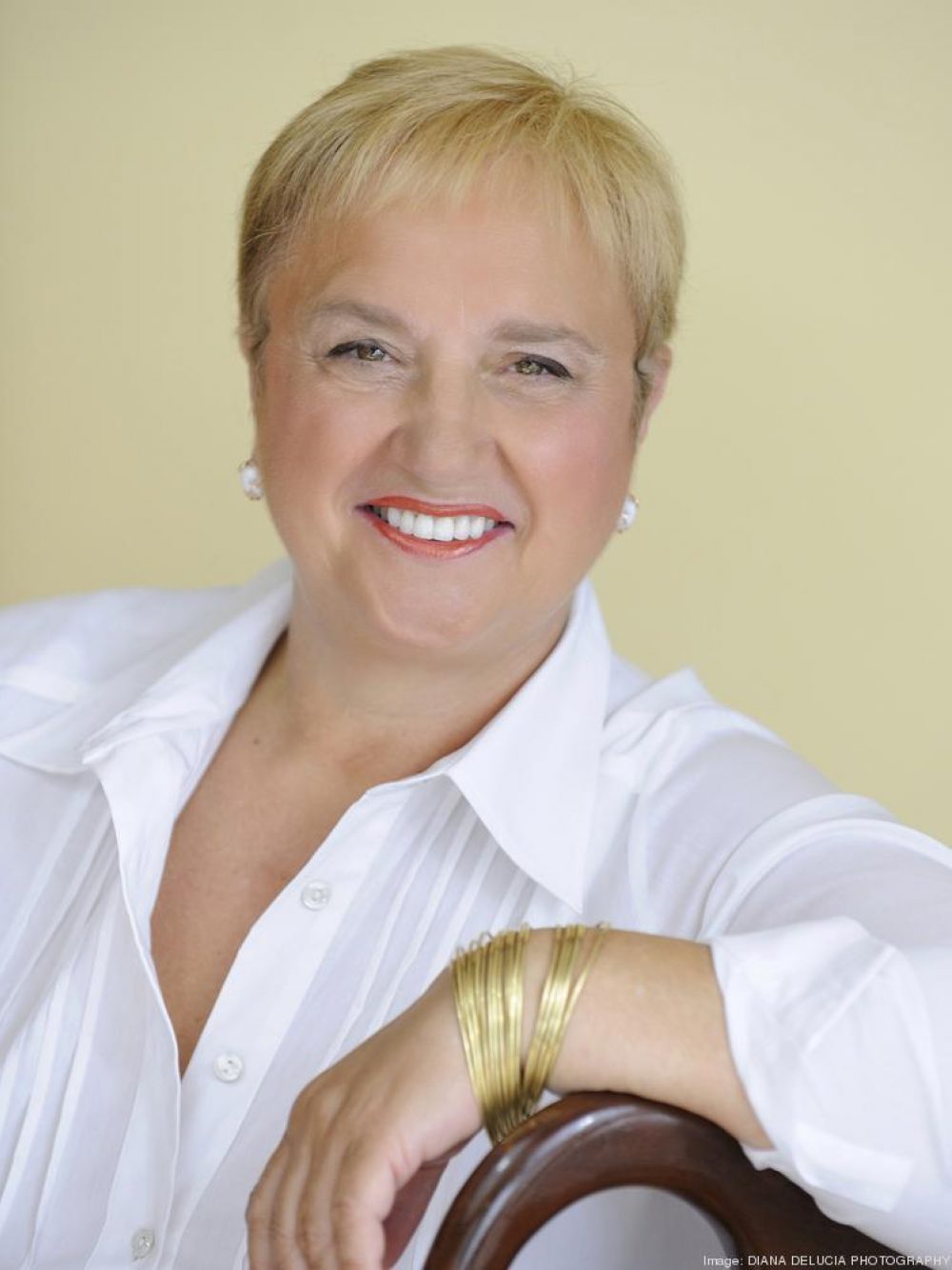Though she was just a little girl when she fled communist Yugoslavia to live in a refugee camp in Trieste, Lidia Bastianich still has fond memories of her early year on her grandmother’s farm, where she slept on a corn husk mattress, ate pig's blood sausage and fresh fig jam, and would boil goat’s milk for cream that she’d spoon onto a slice of bread with jam, honey and sugar for breakfast. When she eventually landed in Manhattan, she remembers staring at the Empire State Building until her neck hurt and developing a love for Spam, Jell-O and Wonder Bread.
On the most recent episode of Milk Street Radio, listen to the chef, author and restaurateur recount her early years and why the secret to happiness is having less, not more. Check out the excerpts from the full interview below and listen here on Milk Street Radio.
On nights spent on a corn husk mattress
In the summertime, we had mattresses made out of dried corn husks. It was a fluffy kind and they were noisy. Every move you heard and the aromas... As a child, my imagination would go wild between the smell and all the noises. I imagined that wolves were coming and all kinds of things that only a child would fantasize.
On her favorite breakfast
We had goats, so in the morning we would boil their milk. You have to be careful it doesn’t go over, so you pull it off once it rises. As it resettles in the pan, a crust of cream forms on top. It’s the most delicious heavy cream—crème fraîche, but warm. My grandma would let it settle and then she would scoop it with a spoon on top of the bread that she made with jam and honey and sprinkle a little bit of sugar, and that was my breakfast.
On escaping to Trieste
Without telling my brother and me, our parents formed their plan to visit our supposedly sick aunt in Trieste. They wouldn’t allow the whole family to go because they knew we wouldn’t come back. My father remained as a hostage and we left. Once we arrived, my aunt, of course, didn’t seem sick to me. Two weeks later, my father physically escaped the border. Dogs were running after him and they shot at him, but he made it. My father had no papers and our visas were expiring. If they caught us, they could have repatriated us, so my parents knew that they couldn’t go back to Yugoslavia. Instead, they went to the police and asked for asylum. They put us in what was a political refugee camp, the remains of a Nazi concentration camp. We stayed there for two more years waiting for a visa. We were lucky enough that we got a visa to come to the U.S.
On immigrating to America
It didn’t take me long to understand that America welcomed people like us and wanted us and needed us. Soon enough, we found comfort and began settling roots. We found peace again. Can you imagine this little kid from Busoler smack in the middle of Manhattan? The Empire State building wasn’t that far away from us and I remember my neck hurting from looking up at everything.
On American foods
Jell-O was this sweet, wobbly stuff that melted in your mouth. I love Spam. I love peanut butter. We didn’t have peanut butter and jelly on Wonder Bread in Italy. I’d squash it into one little ball and eat it. I still love peanut butter and jelly.
On appreciating the simple things in life
Eating simple is eating in season and not having things flown from across the world to you. It is respecting the animals. As kids, we played with goats. And then Sunday came, and the little goat ended up to be dinner, and you accept it, and you are grateful to that animal because they kept you alive. They gave their lives to feed you, nourish you and all of these things. Even in my style of cooking, I am here to exalt what nature gives us at its best. As a chef, it’s not hard to turn it into a delicious meal.
This interview has been edited for clarity.
Join the conversation on Facebook, Twitter, Instagram and Pinterest.
Stay up to date on free recipes, new radio episodes, classes, events and more with our newsletter. Sign up here.



